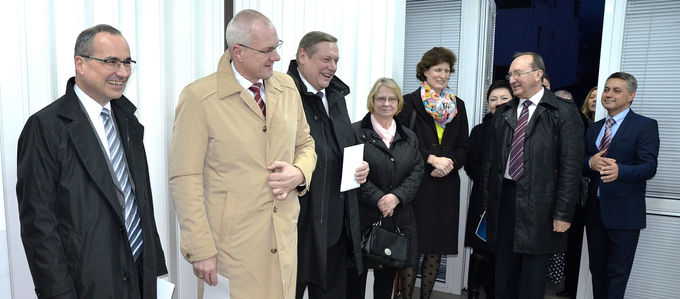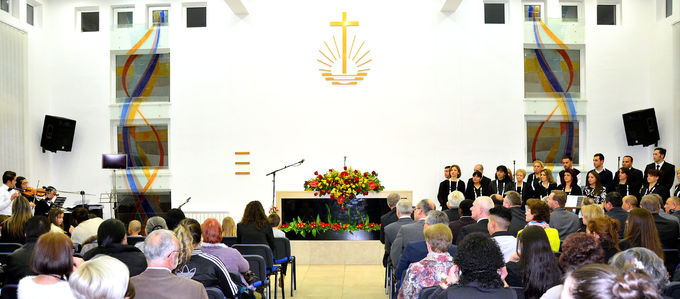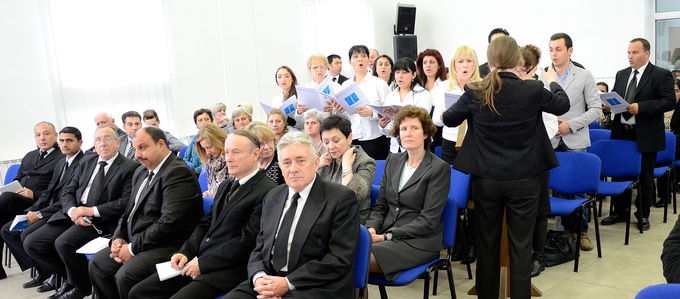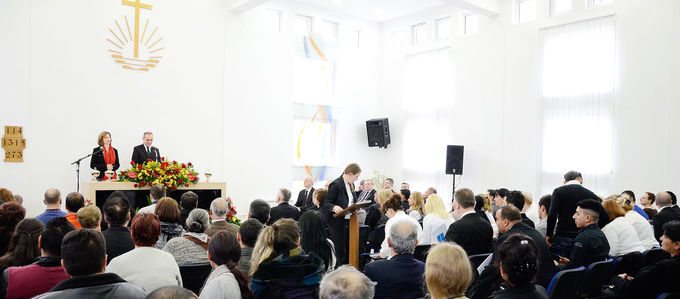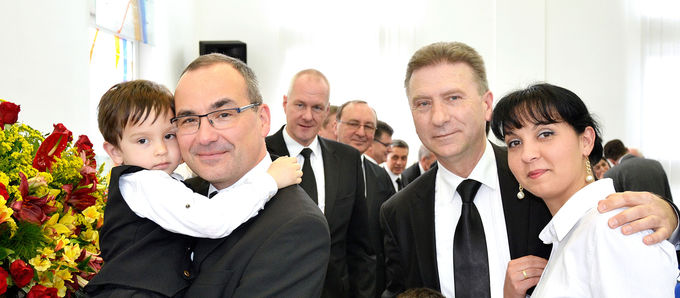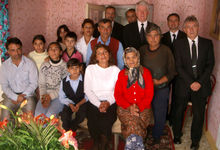In suffering and need: the question of "Why"?
Those who live through suffering and need will often see this as a test permitted by God. "But God does not need to test us in order to measure our faith or our love," emphasized Chief Apostle Jean-Luc Schneider, "So why these tests?"
It was an international congregation that Chief Apostle Schneider served on 8 March 2015 in Skopje, Macedonia: invited to the service were members from Bosnia-Herzegovina, Croatia, Macedonia, and Serbia, as well as ministers from the Ukraine. The sermon was based on a Bible text from Psalm 66: 10: "For You, O God, have tested us; you have refined us as silver is refined."
"Naturally, we too must live through a great deal of suffering and need on this earth," said the Chief Apostle before going on to list examples such as war, natural disasters, sickness, and poverty. "At such times we say, 'The dear God has permitted us to live through a time of testing,' but what is a test anyway? During an exam, a student is tested to see whether he knows enough. Is he sufficiently capable? That is what testing involves for human beings — but that is not the purpose of testing for God! God does not need to perform any tests in order to know whether a person has enough faith, or whether he is loving enough. After all, God is omniscient."
So why have tests in the first place? Concerning this question, Chief Apostle Schneider explained, "The experience of evil during our times of suffering and need does not come from God. Perhaps we are sick. Perhaps we suffer under injustice because we are still on this earth, but God gives us the opportunity to be blessed even in the experience of this need."
And what comprises this blessing? In response to this the Chief Apostle listed five points:
- "In times of suffering, God gives us the opportunity to get to know ourselves better. In suffering and need, we experience contradictions to our faith. Perhaps our loyalty and faithfulness have not been rewarded, we experience the imperfections of the people in church—and the return of Christ remains no more than a promise year after year. When we see such contradictions, we realize just how weak or how great our love and our faith really is."
- "God grants us the opportunity to get to know Him better." In our need we are able to recognize that health, wellbeing, and harmony in family life are gifts of God's grace, which we cannot earn. "Then we seek God in prayer, in the divine services, and in fellowship. Then we experience once again: God is there! And then we also experience the help of God."
- "Then we can experience how Christ can be mighty in us": we experience pain, the consequences of sin, and the power of the evil one. We realize, "Now I must battle! – Now I must overcome the things that seek to separate me from God!" – Without such tests we would not learn this at all.
- "We can become a blessing for our neighbour": those who have been tested through suffering can demonstrate that it is still possible to follow the Lord despite our difficulties. They can now understand those who have difficulty taking up their cross, because they have themselves experienced this. And they can comfort and strengthen others.
- "In the test, one can learn the value and importance of fellowship." Now fellowship means more than merely a group of members who share the same faith. "In our fellowship we see the helpers God has sent us."
"We can trust in God," emphasized the Chief Apostle in conclusion, "because God is love, He gives us the guarantee that the test will never be too long."


